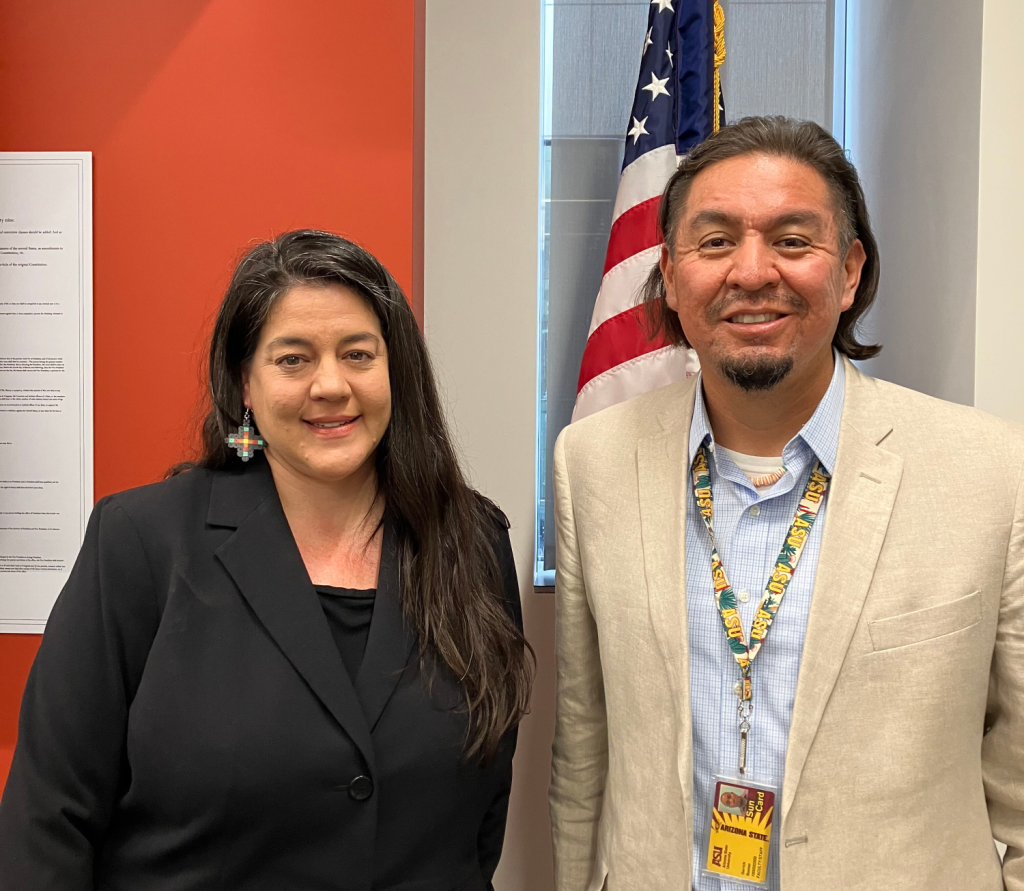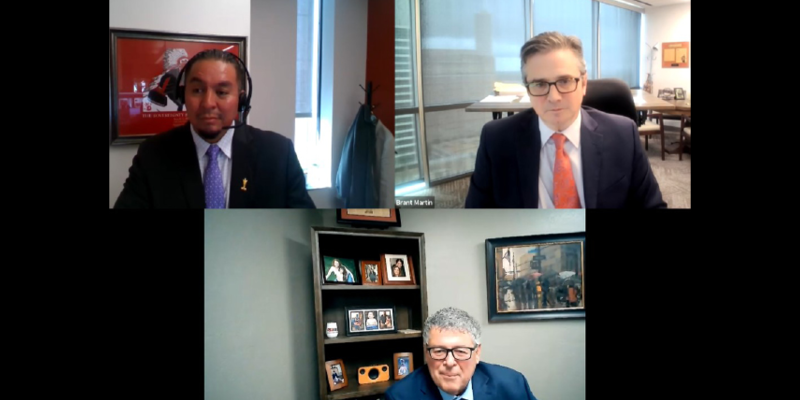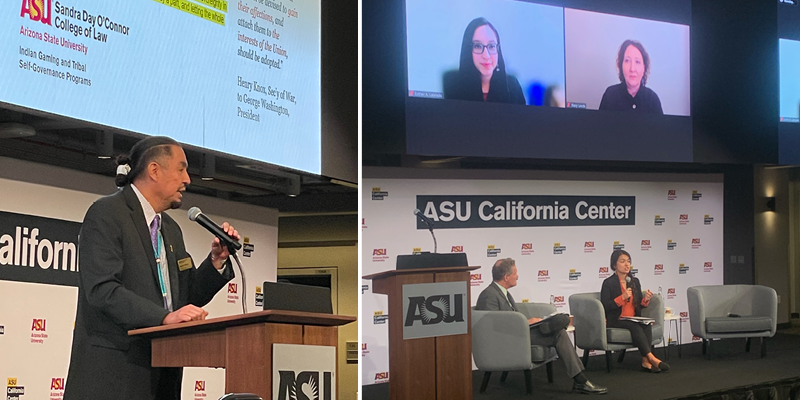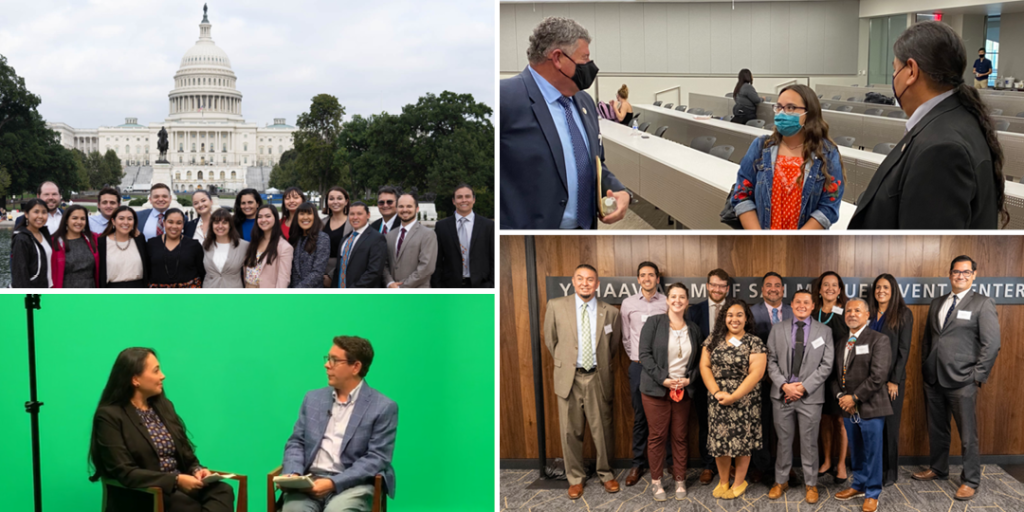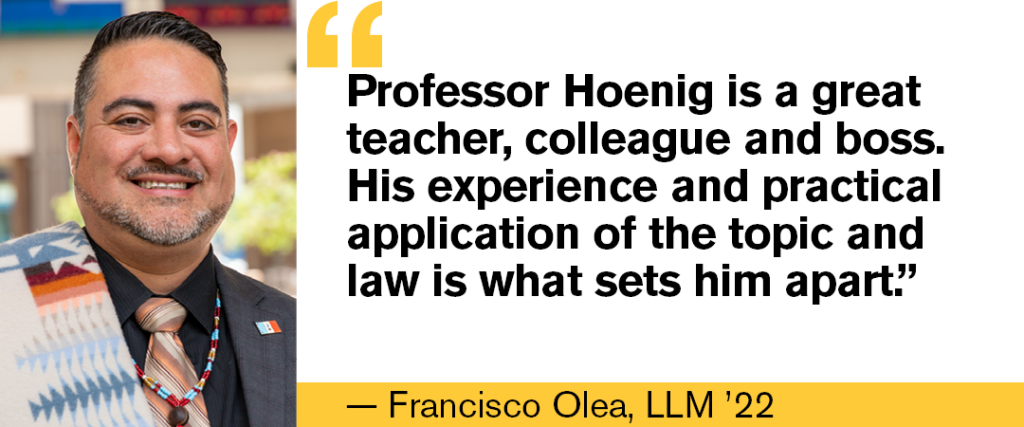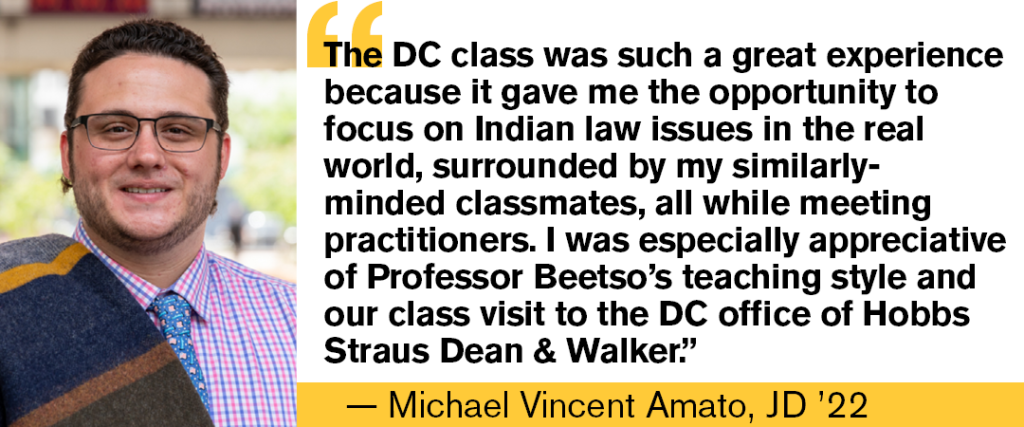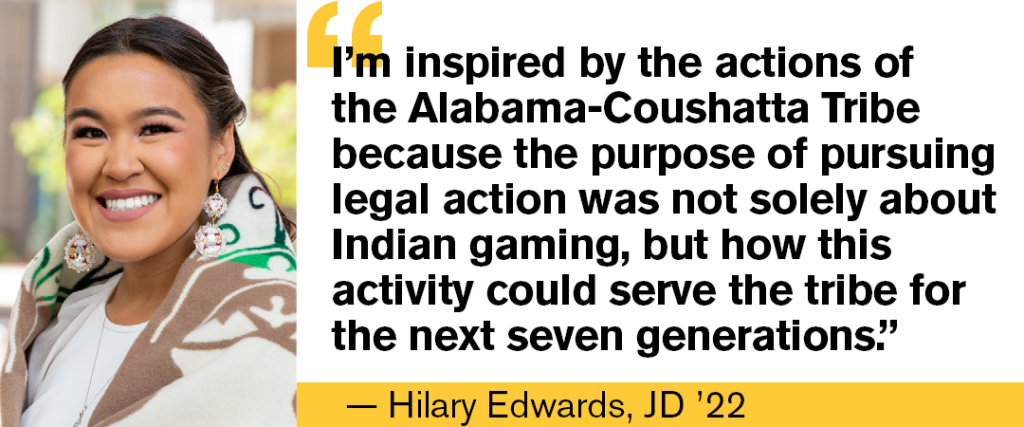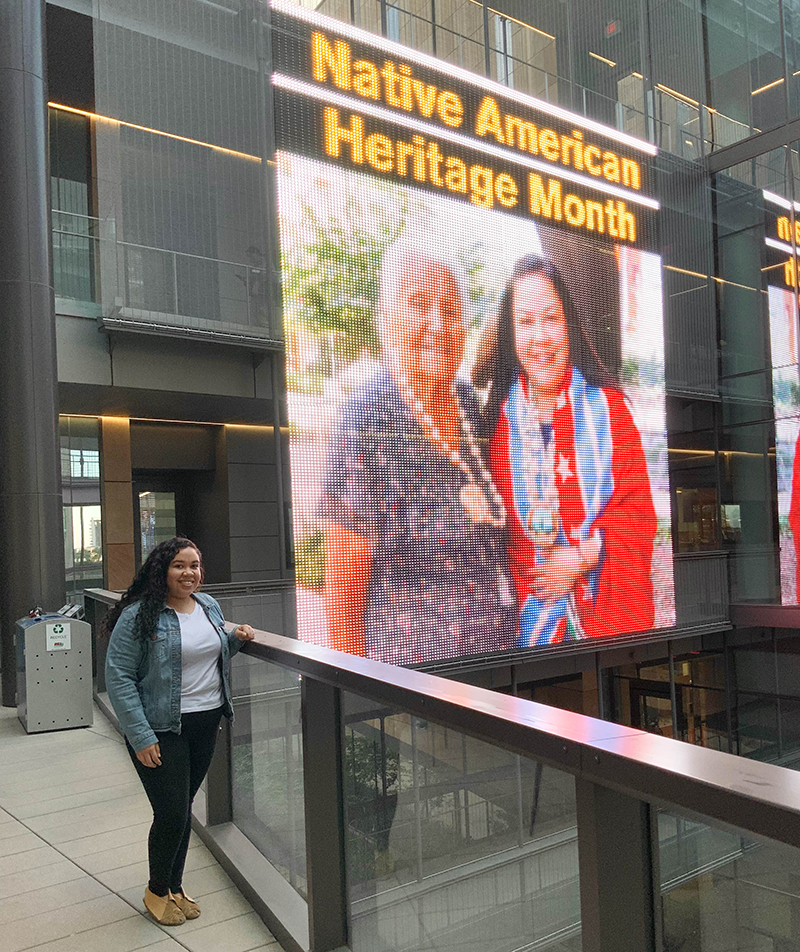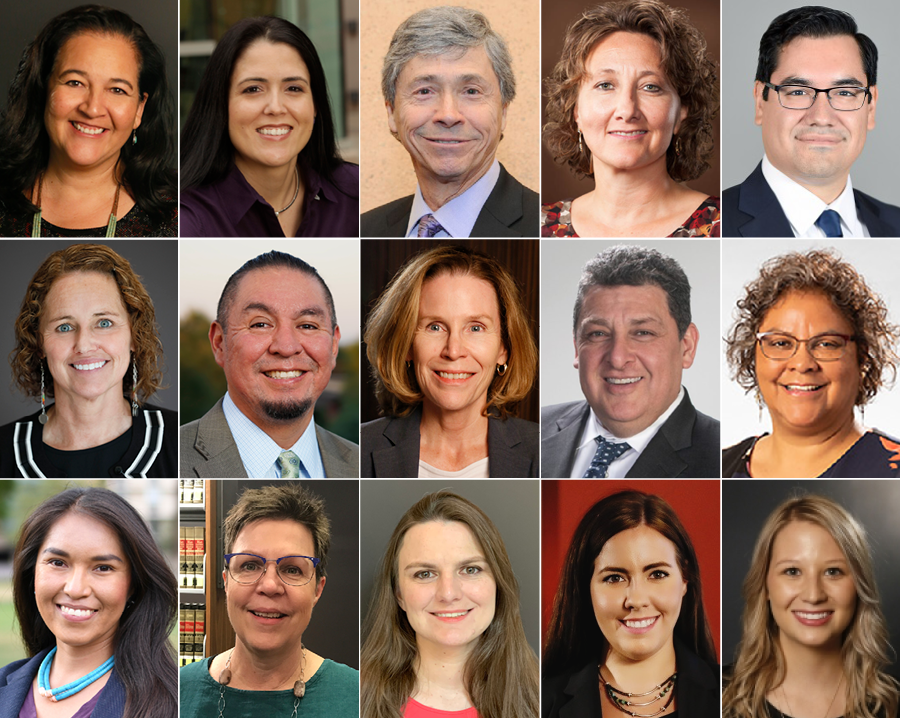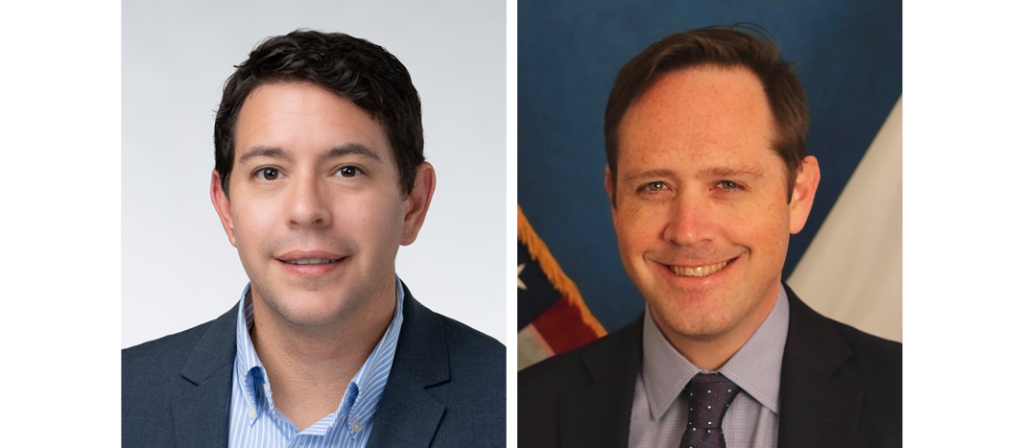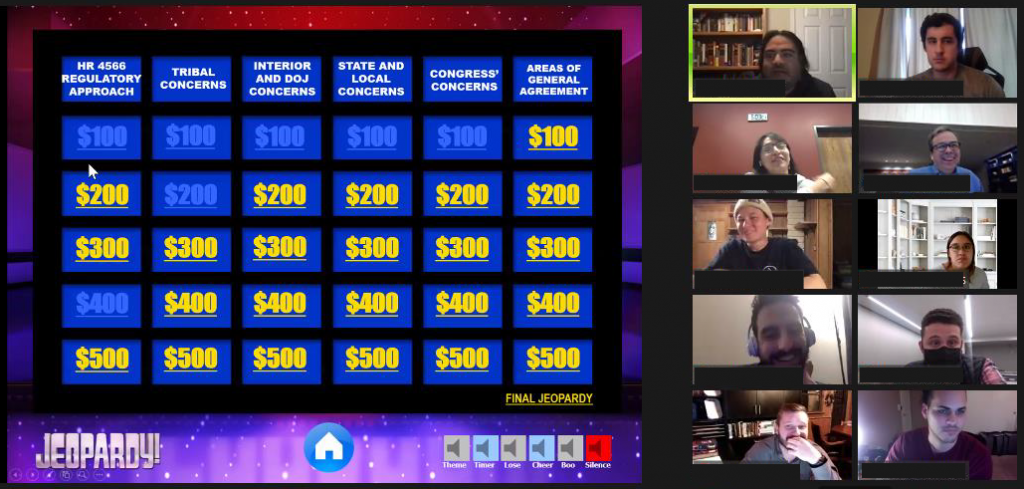The Indian Gaming and Tribal Self-Governance Programs hosted its first annual “Trends in Indian Gaming” webinar on July 15-16. Indian Gaming and Tribal Self-Governance Executive Director Larry Roberts welcomed a national audience of nearly 300 attorneys, students, professionals and thought leaders convening to discuss evolving Indian gaming issues. Dean Douglas Sylvester opened the virtual conference acknowledging that ASU sits on the traditional homelands of tribal Nations. He shared ASU Law’s longstanding and enduring commitment to tribal nations and how the Indian Gaming and Tribal Self-Governance Programs are the latest reflection of that commitment. Special Guest Ernie Stevens, Chairman of the National Indian Gaming Association (NIGA), shared NIGA’s enthusiastic support of ASU’s new Indian Gaming and Tribal Self-Governance focused degree programs and provided an overview of how tribes are again leaders in gaming during these difficult times.
The virtual conference opened with a panel focused on how tribes across the country were balancing covid-19 and reopening, which was moderated by Patty Ferguson-Bohnee, Director of ASU’s Indian Legal Clinic and Clinical Professor of Law. Mohegan Tribe Vice Chairwoman Sarah Harris shared details of the Tribe’s reopening as well as its work with Federal and State officials to address the pandemic and reopening. Shakopee Mdewakanton Sioux Community’s General Counsel William Hardacker provided an overview of how the Midwest Tribe navigated legal issues brought about by the pandemic and how the facility was operating in this changed environment. Providing a west coast perspective, Dan Little, San Manuel Band of Mission Indians’ Chief Intergovernmental Affairs and Tribal Affairs representative, shared the Tribe’s forward-leaning efforts to provide a safe entertainment environment and how the Tribe’s leadership in this area was acknowledged as the gold standard for reopening gaming facilities.
Day 1 of the virtual conference closed with a spirited overview of the latest developments concerning Indian gaming compacts. Moderated by Morongo Band of Mission Indians’ General Counsel Kimberly Cluff, ASU Law alumni Brad Bledsoe Downes (’94) and Scott Crowell (’84) provided their views on the current state of play in Arizona and California regarding tribal gaming compacts. Iowa Law Dean Kevin Washburn shared his insights from his time serving as Assistant Secretary of Indian Affairs and the current state of litigation with the Oklahoma Governor and Indian tribes in Oklahoma. Attorney Andrew Caulum, who focuses on tribal gaming issues for the Solicitor’s Office in the Department of Interior, provided a timely overview of how the Department processes its review of tribal-state gaming compacts.
Participants for Day 2 of the virtual conference were welcomed by ASU Law alum Ann Marie Bledsoe Downes (’94), Director of the Indian Gaming and Tribal Self-Governance Programs. Special guest ASU alum A. Gay Kingman, Executive Director of the Great Plains Tribal Chairmen’s Association extended a warm welcome to the attendees and shared her support for ASU Law’s new programs. She noted ASU’s long-standing commitment to serving the educational needs of tribal nations and tribal citizens. Day 2 opened with a panel moderated by Burton Warrington, Indian Ave. Group, focused on the latest trends in online gaming. Pechanga Band of Luiseño Indians’ General Counsel and ASU Law alum Steve Bodmer (’06) provided an update on the latest developments in California and the complexities moving forward. NIGA Executive Director Jason Giles provided a national perspective of how tribes are approaching online gaming with the Congress. Bay Mills Indian Community Chairman Bryan Newland shared how the tribes in Michigan have worked with the State to offer online gaming under existing tribal-state compacts and to offer off-reservation online gaming under state law. Rion Ramirez, CEO, Port Madison Enterprises provided an update on how tribes in the pacific northwest are approaching online gaming and potential future hurdles.
The virtual conference closed with a panel providing updates on actions by the Trump Administration impacting tribal nations, moderated by David Mullon, Partner, Venable LLP. Two ASU Law alumni, Charlie Galbraith (’06), Partner at Jenner & Block, and National Congress of American Indians’ General Counsel Derrick Beetso (’10), shared their insights regarding Interior and White House actions concerning tribal interests. National Indian Gaming Commission (NIGC) Chairman Sequoyah Simermeyer provided an update on NIGC’s efforts to assist tribal gaming operations during covid. Department of the Interior Deputy Solicitor for Indian Affairs Kyle Scherer provided an overview of litigation in which the Trump Administration supported tribes, including defending the Indian Child Welfare Act.
We extend special thanks to the National Indian Gaming Association, the San Manuel Band of Mission Indians, the Shakopee Mdewakanton Sioux Community for their sponsorship of this inaugural event. These sessions will be posted in the coming weeks on ASU Law’s Indian Gaming and Tribal Self-Governance website – we hope you enjoy the content.
